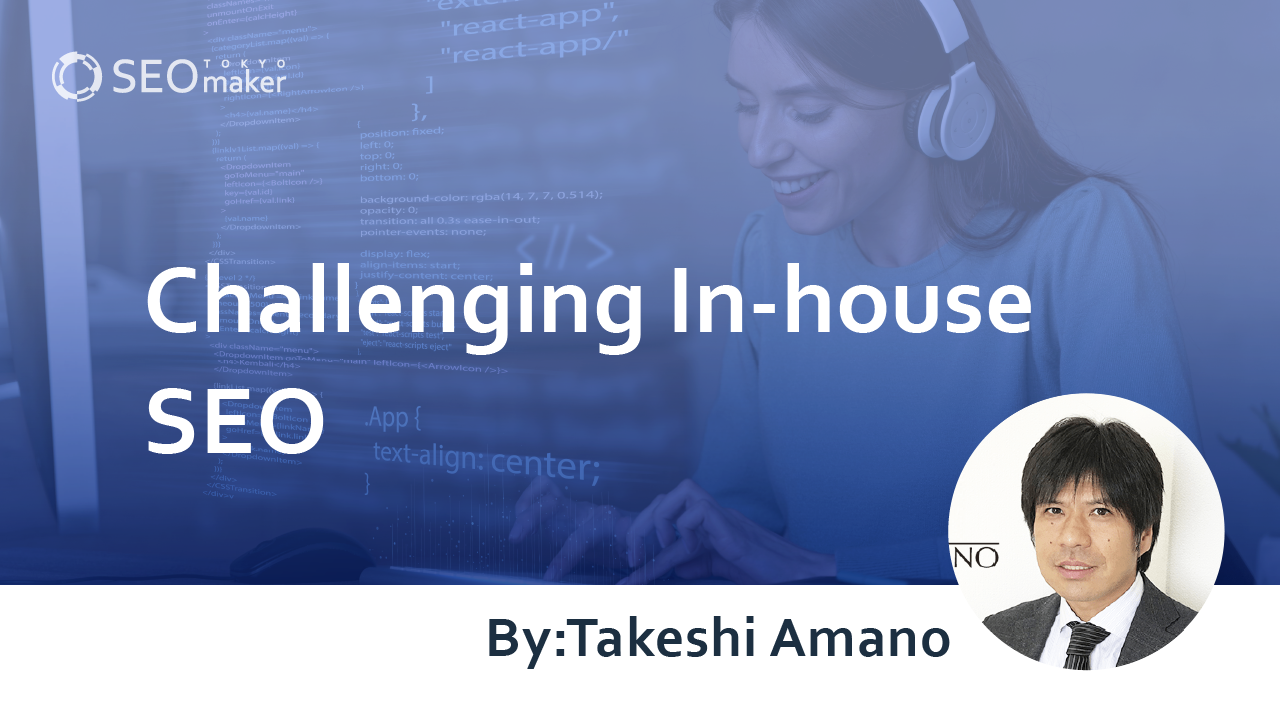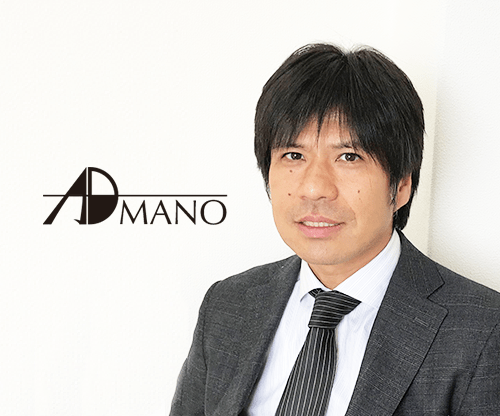Challenging In-house SEO : Explanation based on personal experience
contents

While we often use the term SEO, the scope of its tasks has been increasing year by year. It’s a common realization that merely creating internal measures and content is quite challenging.
SEO strategies may be becoming simpler over the years, but the difficulty level is increasing. Some companies turn to SEO agencies for assistance, while many others have dedicated personnel internally to handle it. However, we often hear stories about SEO personnel who can’t actually do SEO.
What does it mean for someone to be an SEO expert or SEO personnel but unable to perform SEO tasks? Let’s discuss SEO based on real experiences.
What is SEO?
First and foremost, SEO stands for Search Engine Optimization. Translated into Japanese, it means optimizing search engines. If we take the words at face value, SEO involves improving search rankings.
However, the goal of SEO personnel is not just to improve search rankings. Companies have objectives beyond improving search rankings, so unless those are addressed, SEO cannot be considered successful. In most cases, the goal is to increase inquiries or purchases, but sometimes it may also include raising awareness or branding.
In any case, improving search rankings or increasing website traffic is merely a means to increase inquiries or purchases.
Scope of Work for SEO Personnel
Unlike before, the scope of responsibilities for SEO personnel is often very broad these days. This is because simply tuning internal aspects and deploying SEO content may not yield significant results anymore.
The extent of involvement varies depending on whether it’s in-house or consulting, but the initial step is to clearly define the organization’s top priorities and then consider how SEO can contribute to those priorities.
- Clarify the organization’s top priorities
- Consider the areas where SEO can contribute
- Examine project tactics
- Implement in order of priority
It may sound a bit overwhelming, but if you truly want to succeed in SEO, it’s essential to think beyond just ranking for keywords handed down from above. Instead, you need to understand what the organization’s top priorities are and then consider where SEO can play a role.
To do this, you must consider various aspects beyond just internal tuning and content creation, such as social media, public relations activities, advertising responses, UI/UX, and external link acquisition strategies. Honestly, these are things that shouldn’t necessarily fall under the responsibility of an SEO specialist, but they are crucial aspects of SEO strategy.
SEO Personnel Who Can’t Do SEO
Some may find it strange that someone assigned as an SEO specialist can’t actually do SEO, but SEO is a complex and multifaceted field.
There’s a phenomenon called the Dunning-Kruger effect (the hypothesis that people with low ability tend to overestimate their own ability), and sometimes past experiences of success may have been just a small part of what SEO entails.
Content SEO Only
Content is indeed a crucial element in SEO. Without content, your site won’t be indexed, and ultimately, if the content is good enough, SEO will fall into place.
However, it’s important not to misunderstand—while content is necessary, it’s not always sufficient. Even if you have high-quality content, in some niches, it may not be effective enough to achieve a high ranking.
It’s a common scenario in SEO where some personnel have only dealt with content SEO. These individuals may lack experience or knowledge in areas such as server management, coding, programming, or website development, making it difficult for them to make tuning adjustments on their own. They often struggle to give specific instructions to coders or programmers.
[True Story] Content-Heavy SEO Consultants
SEO companies are abundant, and among them are those that heavily prioritize content in their SEO strategy. While content is undoubtedly important, these companies often neglect the current issues with the site and focus solely on churning out content. They use tools to generate keyword lists and then advise clients to address all those keywords. If clients can’t create content themselves, these companies offer article creation services for a fee.
While this approach isn’t necessarily wrong, without addressing the current issues with the site, it’s challenging to improve rankings. However, it’s true that having good content can often lead to improved rankings.
Technical SEO Only
There aren’t many SEO personnel who focus solely on technical SEO, but they do exist. Especially when hiring low-cost SEO consultants, some may perform basic technical SEO in the first month and then wait and see.
Technical SEO involves many detailed aspects, including title tags, meta descriptions, headings, canonicalization, normalization, internal link optimization, site speed optimization, server settings, and cache revisions. While technical SEO knowledge and implementation are essential, improvements are only possible if previous content already existed but lacked optimization for search engine visibility.
Some companies separate SEO personnel from content directors, which is fine for specialization, but it becomes a problem if there’s no collaboration.
[True Story] Technical-Heavy SEO Consultants
Technical-heavy SEO consultants are relatively common. They charge monthly consulting fees insufficient for content creation, so they focus on proposing specific site improvement suggestions and implementations, as well as suggesting keyword themes and directions for lacking content.
The problem arises when these consultants completely ignore content. While they may use tools to diagnose site issues and make recommendations for corrections, all of their suggestions may focus solely on technical aspects. Ultimately, without content, rankings won’t improve, and achieving a good ranking often requires a certain number of articles.
Many SEO specialists surprisingly don’t have their own websites
SEO strategies can vary significantly depending on the field, and it’s not uncommon for techniques that worked on one site to have no effect on another.
Once you have the basics in place, you need to focus on enhancing the uniqueness of your site. However, this can be challenging for those who have only implemented standardized approaches.
To address this, SEO specialists should regularly gather information and have their own websites. Having multiple sites across different genres allows you to gauge Google’s fluctuations and understand different niches.
The fact that affiliate marketers often transition to web consulting firms may largely be attributed to having their own sites and consistently tracking data and information.
Bosses Who Don’t Understand SEO
This is perhaps the worst-case scenario but a very common one. Many bosses at web companies don’t understand SEO at all.
-‘Setting meta keywords is crucial for SEO,’
-‘Having more pages makes a site stronger,’
-‘Using expired domains yields immediate results.’
These are just examples, but I’ve genuinely heard such baffling remarks. While employees are expected to follow company policies, implementing such strategies won’t yield results. I’ve experienced instances where managers dismiss suggestions from their staff and blame them when the strategies fail.
Even strategies deemed ineffective in SEOs can sometimes lead to changes in rankings after implementation. While those unfamiliar with SEOs may attribute this to the success of their actions, those with even a basic understanding of SEOs would likely question whether the changes were due to other factors.
Such miscommunication can lead to significant problems, with employees often being tossed around by their bosses and experiencing failures as a result.
Some Things Just Won’t Succeed No Matter Who Does Them
Lastly, here’s some sad news. While SEO can yield significant results through wisdom and experience, there are times when success is simply unattainable, no matter who tries.
To be precise, there are instances where a company decides it can’t wait for the success of SEO because it takes a considerable period to achieve success.
Success in SEO heavily depends on keyword difficulty and site size, making it extremely challenging to determine success rates. Even with the right strategies and excellent content, it’s common for it to take over six months to see results. In some cases, it may take two to three years for significant traffic growth after implementing strategies.
Shortening this timeline is where the skill of an SEO specialist shines. However, because simulations often fall short of reality, even talented SEO specialists may be perceived as ineffective.
If you’re unsure about your company’s strategy or if you’re not achieving the desired results, consider consulting with Tokyo SEO Maker.










![What is a Description? Explaining the Meaning, Writing Style, and Changing Word Count – [2023 Edition]](https://www.switchitmaker2.com/en/wp-content/uploads/2024/09/what-is-description.webp)










